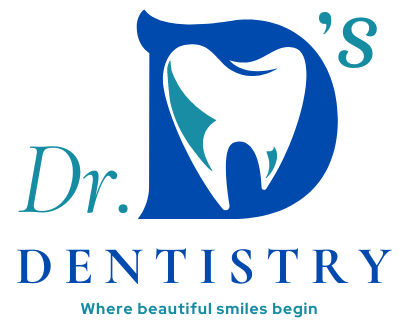Taking care of your teeth is more than just a routine; it’s a lifestyle choice that affects your overall health. Let’s dive into some often Healthy Teeth Tips to help you achieve that dazzling, healthy smile.
Daily Brushing Techniques
Choosing the Right Toothbrush
Manual vs. Electric: Choosing between a manual and an electric toothbrush can be a game-changer. While manual brushes are effective, electric toothbrushes often provide a deeper clean by oscillating and vibrating to remove plaque more efficiently for Healthy Teeth Tips

Proper Brushing Technique
Angle and Motion: The way you brush your teeth matters. Hold your toothbrush at a 45-degree angle to your gums. Use gentle, circular motions rather than harsh, back-and-forth scrubbing for Healthy Teeth Tips
Duration and Frequency: Brush for at least two minutes, twice a day. Set a timer if needed to ensure you’re not cutting corners.
Flossing for Complete Cleanliness
Importance of Flossing
Flossing is crucial for removing food particles and plaque between teeth, where your toothbrush can’t reach. This helps prevent gum disease and cavities for Healthy Teeth Tips
How to Floss Correctly
Types of Floss: There’s waxed, unwaxed, dental tape, and more. Choose what feels most comfortable for you for Healthy Teeth Tips
Flossing Steps: Gently slide the floss between your teeth, curve it into a C-shape around each tooth, and move it up and down to clean the sides of each tooth.
The Role of Mouthwash
Types of Mouthwash
Therapeutic vs. Cosmetic: Therapeutic mouthwashes contain active ingredients to reduce plaque, gingivitis, cavities, and bad breath. Cosmetic mouthwashes temporarily control or reduce bad breath but don’t deal with the causes of bad breath or prevent cavities.
Using Mouthwash Effectively
Swish the mouthwash around in your mouth for 30 seconds after brushing and flossing. Avoid eating or drinking for 30 minutes afterward to let the ingredients work.
Diet and Dental Health
Foods That Promote Healthy Teeth
Calcium-Rich Foods: Dairy products, leafy greens, and almonds help strengthen your teeth.
Crunchy Fruits and Vegetables: Apples, carrots, and celery can act like natural toothbrushes, scrubbing away plaque as you eat.
Foods to Avoid
Sugary Snacks: Bacteria in your mouth feed on sugar, producing acid that leads to tooth decay.
Acidic Beverages: Limit intake of soda, wine, and citrus juices. They can erode enamel and cause cavities.
Regular Dental Check-Ups
Frequency of Visits
Visit your dentist at least twice a year for cleanings and check-ups. This helps catch problems early before they become serious.
What to Expect During a Check-Up
Your dentist will examine your teeth, gums, and mouth, perform a professional cleaning, and may take X-rays to detect issues not visible to the naked eye.
Avoiding Harmful Habits
Smoking and Its Effects
Smoking stains your teeth, contributes to gum disease, and increases your risk of oral cancer. Quitting smoking can significantly improve your oral health.
Chewing Ice and Other Hard Objects
Chewing on ice or hard objects can chip or crack your teeth. Opt for sugarless gum if you need something to chew on.
Whitening Teeth Safely
Professional Whitening Treatments
These are performed by your dentist and can provide dramatic results quickly. However, they can be costly.
At-Home Whitening Options
Over-the-counter whitening strips, gels, and toothpaste can also be effective. Always follow the instructions to avoid damaging your teeth.
Using Dental Products with Fluoride
Benefits of Fluoride
Fluoride strengthens tooth enamel, making it more resistant to decay. It can also reverse early signs of tooth decay.
Finding Fluoride Products
Look for toothpaste, mouthwash, and even some drinking water that contains fluoride. Your dentist might also apply fluoride treatments during visits.
Protecting Teeth During Sports
The Importance of Mouthguards
Mouthguards cushion blows that could otherwise cause broken teeth, injuries to the lips and tongue, or jaw fractures.
Types of Mouthguards
You can get custom-fitted mouthguards from your dentist or buy boil-and-bite versions from sporting goods stores.
Managing Dry Mouth
Causes of Dry Mouth
Dry mouth can be caused by medications, medical conditions, or simply not drinking enough water.
Solutions for Dry Mouth
Stay hydrated, use saliva substitutes, and avoid alcohol-based mouthwashes. Chewing sugar-free gum can also stimulate saliva production.
Recognizing and Treating Dental Issues Early
Common Dental Problems
Be on the lookout for cavities, gum disease, and oral cancer. Early detection is key to successful treatment.
When to See a Dentist
If you notice any unusual symptoms like persistent bad breath, bleeding gums, or tooth pain, make an appointment with your dentist right away.
Understanding the Impact of Medications on Dental Health
Medications That Affect Teeth
Certain medications can cause dry mouth, gum enlargement, or tooth decay. These include antihistamines, antidepressants, and blood pressure medications.
Managing Side Effects
Talk to your dentist about any medications you’re taking. They can suggest ways to mitigate side effects, such as using specific dental products or treatments.
Teaching Kids About Dental Hygiene
Fun Ways to Encourage Brushing
Make brushing fun with colorful toothbrushes, tasty toothpaste, and brushing charts. Sing songs or set a timer to make sure they brush long enough.
Importance of Early Dental Care
Instilling good habits early sets the foundation for a lifetime of healthy teeth. Start dental visits by their first birthday or when their first tooth appears.
Conclusion
Achieving perfectly healthy teeth is a combination of good daily habits, proper nutrition, and regular professional care. By following these surprising tips, you can maintain a beautiful, healthy smile for years to come.


